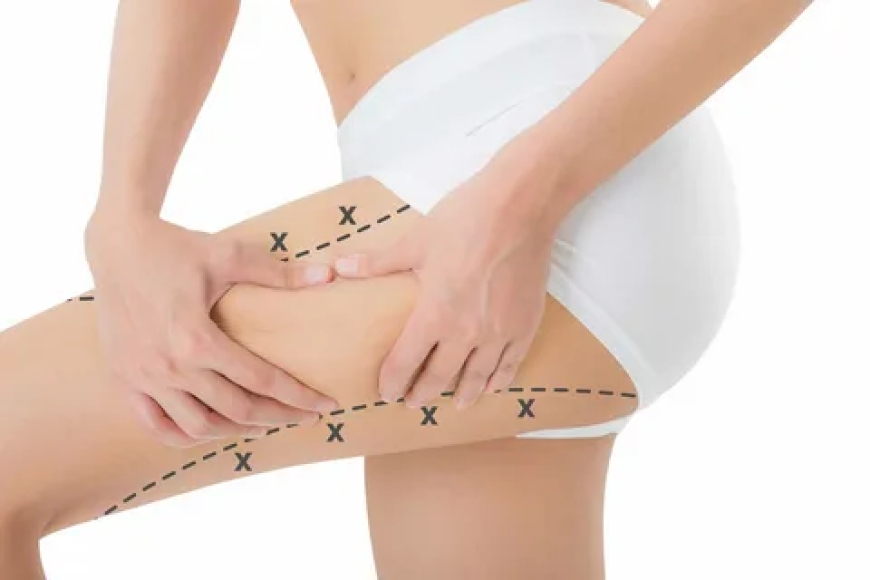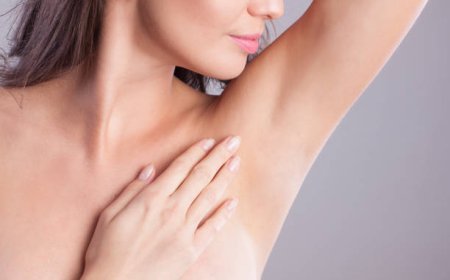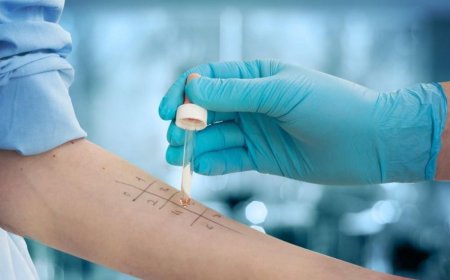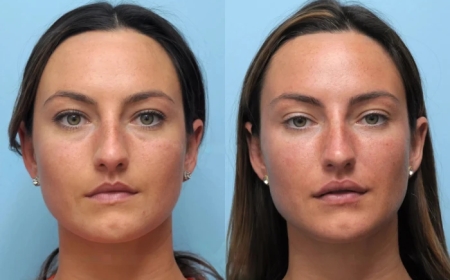Liposuction and Diet: How Nutrition Affects Your Results

Understanding Liposuction and Its Goals
Liposuction is a cosmetic procedure designed to target and remove stubborn fat deposits from specific areas of the body. While its often viewed as a quick fix for fat loss, liposuction is not a replacement for a healthy lifestyle or weight management. Instead, it is most effective when paired with a commitment to proper nutrition and long-term fitness habits. Knowing this distinction can help set realistic expectations for anyone considering the treatment.
The Role of Diet in Enhancing Liposuction Results
Many individuals pursue Liposuction in Riyadh(??? ?????? ?? ??????) with the hope of achieving a more contoured body shape. However, the success and longevity of those results depend significantly on post-operative careespecially diet. Eating well doesnt just maintain your new look; it enhances recovery, supports tissue healing, and prevents fat from returning in untreated areas.
After the procedure, your body undergoes changes in how it stores and metabolizes fat. Nutrition becomes crucial in this phase, making it important to shift from just calorie-counting to nutrient-focused eating. Proper diet choices can reduce swelling, fuel tissue repair, and even minimize the risk of complications.
How Poor Diet Choices Can Undermine Liposuction
A poor diet can quickly counteract the effects of liposuction. Consuming high amounts of processed foods, sugars, and unhealthy fats can lead to fat accumulation in other areas of the body. Since liposuction removes fat cells in specific regions, the remaining fat cells elsewhere may increase in size if calorie intake remains high, resulting in uneven body contours.
Moreover, a lack of key nutrients like vitamins, minerals, and lean proteins can slow healing, increase inflammation, and make you feel fatiguedmaking it harder to stick to an active lifestyle. Thats why understanding the connection between liposuction and diet is essential before and after the procedure.
What to Eat After Liposuction: A Nutritional Blueprint
Focus on Whole, Anti-Inflammatory Foods
A diet rich in whole foods helps the body recover faster. Think leafy greens, fresh fruits, whole grains, and lean proteins. These foods offer anti-inflammatory benefits and support immune function. They also provide the vitamins needed for tissue repair and energy production.
Stay Hydrated
Water supports detoxification, reduces bloating, and helps regulate your metabolism. It also aids in maintaining skin elasticitya vital part of achieving a smooth, toned look after liposuction.
Include Lean Proteins
Proteins like chicken, fish, eggs, and legumes are essential for cellular repair. They provide amino acids needed for rebuilding tissue and maintaining muscle mass, which is crucial for shaping your body post-procedure.
Limit Sodium and Sugar
Sodium can contribute to water retention and swelling, making recovery uncomfortable. Excess sugar promotes fat storage and can hinder your metabolic rate. Reducing both helps you feel lighter and heal more effectively.
Pre-Liposuction Nutrition: Getting Your Body Ready
Boost Nutrient Stores
Before undergoing Liposuction in Riyadh, you can optimize your recovery by eating nutrient-dense foods. Vitamins A, C, and E, as well as zinc and omega-3 fatty acids, are particularly helpful in preparing your immune system and reducing inflammation.
Avoid Alcohol and Caffeine
Alcohol and caffeine can dehydrate the body and potentially interfere with anesthesia or medications. Cutting them out before surgery helps prepare your liver and kidneys for the post-op detox process.
Strengthen Your Gut
A healthy gut promotes efficient digestion and nutrient absorption. Include probiotics like yogurt and fermented foods in your diet leading up to the procedure to improve immune function and overall gut health.
The Long-Term Relationship Between Liposuction and Diet
Liposuction offers aesthetic enhancement, but its permanence depends on your commitment to a healthy lifestyle. Long-term success is rooted in making informed dietary choices. The idea is not to follow temporary diet trends, but to adopt a sustainable approach to nutrition that keeps your body sculpted and your energy high.
If you revert to poor eating habits post-procedure, your body can store fat in untreated areas, resulting in a less desirable shape. On the other hand, maintaining your weight with nutrient-rich foods ensures the sculpted results from Liposuction in Riyadh remain consistent over time.
Exercise and Diet: The Dynamic Duo After Liposuction
While this article focuses on nutrition, its worth noting that exercise plays a complementary role. A healthy diet provides the fuel for activity, and together they help tone the body and prevent fat from returning. Cardio, strength training, and flexibility exercises should become part of your regular routinesupported by proper nutrition to energize and repair your body.
Common Dietary Myths After Liposuction
Myth 1: You Can Eat Anything After Liposuction
Truth: Liposuction removes fat, but it doesnt stop fat from coming back. You still need to watch what you eat to prevent weight gain.
Myth 2: Detox Diets Are Necessary Post-Procedure
Truth: Your body naturally detoxifies itself. Instead of extreme cleanses, focus on a balanced, nutrient-dense diet.
Myth 3: Carbs Should Be Completely Avoided
Truth: Not all carbs are bad. Whole grains and fiber-rich fruits support digestion and provide sustained energy.
Conclusion: Nutrition Is the Key to Long-Term Liposuction Success
Diet plays a fundamental role in both the short-term recovery and long-term maintenance of liposuction results. While the procedure offers a powerful boost in body confidence and contour, your choices afterward determine whether those results last.
Eating mindfully, staying active, and focusing on wellness rather than restrictions will help you fully embrace the benefits of Liposuction in Riyadh. Remember, its not just about looking betterbut also about feeling healthier, stronger, and more confident in your body.
? Frequently Asked Questions About Liposuction and Diet ?
? What should I avoid eating after liposuction?
Avoid processed foods, refined sugars, high-sodium meals, and saturated fats. These can slow recovery and contribute to weight gain in other areas.
? Is fasting safe after liposuction?
Fasting isnt recommended immediately after liposuction. Your body needs nutrients to heal. Focus on small, balanced meals with lean protein, fruits, and vegetables.
? Can I take supplements to boost results?
Yes, but always consult your provider first. Common supplements that support healing include vitamin C, zinc, and omega-3 fatty acids.
? Will drinking more water improve my results?
Absolutely! Hydration reduces swelling, helps flush toxins, and improves skin elasticitymaking your results look more refined.
? How long should I maintain a post-liposuction diet?
Ideally, forever. Treat your post-liposuction diet as a new lifestyle rather than a temporary fix to maximize and sustain your results.
































